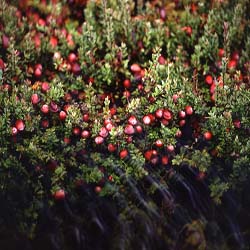|
Cranberry
Introduction[Top] Cranberry is also known as vaccinium macrocarpon. The red berries are employed in foods as well as herbal products. They grow in bogs in cooler parts in the Northern hemisphere.
What vaccinium is used for[Top] Historically, vaccinium leaves and fruits were employed for various problems, like urinary disorders, wounds stomach ailments, liver problems, diarrhea, and diabetes. Vaccinium products recently have been employed to halt and treat urinary tract infections which if untreated may lead to ulcers in the stomach. It is also used to prevent dental plaque. Native Americans used vaccinium in various foods, dye and wound medicine. Vaccinium has also been reported to have antioxidant and anticancer activity.
How vaccinium is used[Top] Beverages are produced from the berries as well as several other food products. It is also used for dietary supplements. It comes in the form of capsules, teas, tablets, or extracts. Science Says[Top] Prof. Itzhak Ofek, who is a researcher at Tel Aviv University's Sackler Faculty of Medicine, discovered that vaccinium juices displays anti-viral elements against the flu. It cuts down the possibilities of gastric ulcers as well as prevent cavities A review done in Scotland which appears in the Cochrane Library(a international organization which assesses research in all manor of health care)discovered that vaccininum products considerably lessens UTIs(urinary tract infection) over twelve months in comparison to placebo/control groups. Vaccininum treatment was found to be more effective for the women who had recurrent UTIs. There has been some small research done on vaccinium's ability to prevent cancer. The results were very promising, far more human research must be done on it.
Side affects and cautions[Top] Eating vaccininum food products is thought to be safe, drinking too much juice can cause diarrhea or gastrointestinal upset or diarrhea. Back to natural healing home page
|
Loading



